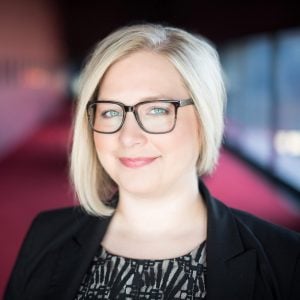This week the U.S. Supreme Court issued its 7-2 decision in Gallardo v. Marstiller, 2022 U.S. LEXIS 2683. The Court held that the “Medicaid Act permits a State to seek reimbursement from settlement payments allocated for future medical care.” Up until this ruling, many thought state Medicaid agencies were limited to recovering money from third party liability settlements to offset payments made by the Medicaid program for care related to the claim, and not for any future, post-settlement, medical expenses.
Facts
In 2008, a truck struck then-13-year-old Gianinna Gallardo after she stepped off her school bus in Florida. As a condition of receiving Medicaid assistance and as is customary for Medicaid recipients in any state, Gallardo assigned Florida a right to recover from third parties for care related to her injuries. Unlike many jurisdictions, Florida’s Medicaid Third Party Liability Act allows Florida to seek reimbursement of past AND future medical expenses related to the claimed injury out of the settlement proceeds. Under Florida law, the state is presumptively entitled to recover half of a beneficiary’s total recovery (including future medical), after deducting 25% for attorney’s fees and costs. The law allows beneficiaries to overcome that presumption, but only by clear and convincing evidence.
Gallardo’s family sought $20 million in its suit against the school district and the at-fault driver. The parties settled for $800,000, 4% of what the family demanded. As had been customary prior to this ruling, the parties then designated roughly $35,000 for the family to use to reimburse Florida Medicaid for past medical expenses. The overall settlement amount included an undefined portion as and for future medical expenses.
Florida Medicaid seized on the included unallocated future medicals and exercised its option to recover for both past and future medical expenses, applying its 37.5% rebuttable recovery presumption to the total value of the overall settlement. Florida Medicaid sought to recover $300,000 instead of the roughly $35,000 that had been designated by the parties to resolve the Florida Medicaid “lien.”
While the Gallardo family appealed the decision under Florida’s administrative law, the family also brought suit seeking a declaration that Florida was violating the Medicaid Act by trying to recover from portions of the settlement compensating for future medical expenses. The U. S. District Court for the Northern District of Florida granted Gallardo summary judgment. But the 11th Circuit reversed, concluding that “the text and structure of the federal Medicaid statutes do not conflict with Florida law” because they “only prohibit a State from asserting a lien against any part of a settlement not ‘designated as payments for medical care.’” The 11th Circuit explained the relevant Medicaid Act provisions “d[o] not in any way prohibit [a State] from seeking reimbursement from settlement monies for medical care allocated to future care.”
The Ruling
The Supreme Court held that the plain text of the Medicaid Act requires a State to condition Medicaid eligibility on a beneficiary’s assignment to the State of “any rights… to support…for the purpose of medical care” and to “payment for medical care from any third party.” The court further explained the term “any right” did not place limitations on recovery, but that the wording naturally covered past and future medical expenses. Thus, the plain language of Florida’s Medicaid recovery law authorizing the state to recover payment for medical care – past or future – was expressly authorized by federal law.
To the extent the Court found a relevant, distinguishable distinction between the provisions of law at issue, they found it between the terms “medical and nonmedical care,” not expressly between past (paid) medical care payments and future (unpaid) medical care payments. Thus, states are still barred under Arkansas Dept. of Health and Human Services v. Arkansas and Wos v. E.M.A. from recovery out of the nonmedical portions of third party liability settlements.
Justice Sotomayor dissented and Justice Breyer joined her. The dissent would have limited Florida Medicaid to recovery from the settlement funds solely dedicated to payment of past medical care. The dissent argued the Medicaid recovery provisions as written and amended by Congress should be read and interpreted “as a symmetrical and coherent regulatory scheme while fitting all parts into a harmonious whole,” (original quotations and formatting omitted) and that the Medicaid recovery laws should track background principles of insurance law. Under the principles of insurance law, the dissent found recovery by an insurer against a third party is generally limited to the same elements as those for which the insurer has made actual payment.
Implications
This is a significant development in the Medicaid Secondary Payer arena. Stakeholders must now be cognizant of any states that have Medicaid recovery language similar to that of Florida. And in those jurisdictions, the parties must brace for the potential of recovery for both past and future medical expenses.
Parties in the Medicare Secondary Payer realm should take notice here, as well. The plain language of the MSP Statute does not expressly allow for recovery by Medicare for future medical expenses despite a footnote in the dissent that states otherwise. Interestingly, that footnote cites to code enacted prior to the formation of Medicare. We know that Medicare is contemplating changes to its Workers’ Compensation Medicare Set-Aside program and angling to introduce Liability and No-Fault Medicare Set-Aside programs. This ruling could influence Medicare in those efforts.
ECS closely monitors Medicaid and Medicare Secondary Payer matters and will continue to monitor the effects and implications of this ruling across the U.S. and in Congress. If you are in need of assistance investigating and resolving potential Medicaid liens or have any questions about this Gallardo ruling, please reach out to Annie M. Davidson, Senior MSP Compliance Counsel and Policy Strategist for ECS, at 651-262-9618 or via email at annie.davidson@examworkscompliance.com or Ashley McCullen, MSP Compliance Counsel, at 713-205-4775 or via email at ashley.mccullen@examworkscompliance.com.
